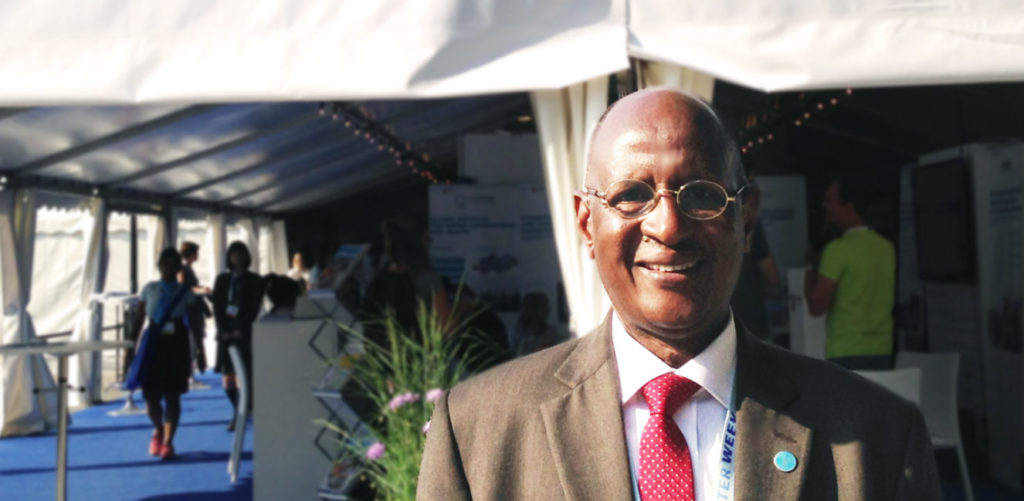Water is required for all stages of food production – from growing to preparation, and it is no surprise that 70% of all fresh water withdrawals are used for agricultural purposes. Yet water and agriculture actions in most of the regions often operate with little or no coordination.
Experts were commissioned by the Global Committee on Food Security to prepare a report on Water for Food Security and Nutrition to gather the best available knowledge on the topic and facilitate a knowledge-based robust decision making. The report goes far beyond agricultural matters linking up to the discussion on human rights, international trade, and fundamental role of sanitation and gender equality.
Released earlier this year, the HLPE #9 was presented by Amadou Allahoury, HLPE Steering Committee member during the World Water Week in Stockholm. After the event Mr. Allahoury kindly agreed to share his thoughts about the outcomes of the report.
Q: Going beyond the report, what are the first policy steps?
AA: The first political step is the CFS meeting and the negotiations of the report by a wide range of stakeholders including state representatives, private sector and civil society. After the negotiations the outcomes of the report will be translated into the voluntary guidelines for the implementation on a country level. The countries which are willing to implement these voluntary guidelines can get support from FAO in terms of expertise. Also, it is a public document and anyone can pick up information that is useful for their purposes.
Q: How do you see water and food sectors working together in practice?
AA: This report provided water, food and nutrition communities with an opportunity to gather for a dialogue. The first thing to do is to start to think out of silos and come up with multidimensional strategies. After that, those strategies can be implemented by each sector, providing there is time and space for consultation between the sectors during the implementation.
Q: Where do you think are potential pitfalls in this cooperation?
AA: Breaking the silos is critical and it will be the main challenge for implementation.
Q: The report contains concerns over the market approach to water regulation, but what are the alternatives?
AA: The HLPE report is not against the market approach, but it is important to understand that it is not only about trade. Other aspects have to be taken into account such as, for instance, the issue of virtual water in trade that involves water transfer from the water scarce countries through the production and processing of commodities.
Q: The question of rights to water for food was mentioned as one of the most debated in regards to the outcomes of the report. Could you tell a bit more about the discussion?
AA: Everyone agrees that we have to support water rights, especially for the most marginalized and vulnerable population. However, the issue is how to implement the water rights framework and make it concrete. There are usually many different interests around water and those who are stronger get better entitlement, while rights of those who are weaker are often not recognized. Political will and strong leadership is absolutely crucial for solving this problem.
Would like to know more? Explore the HLPE #9 with Dr. Yihun Dile, SEI Research Fellow
